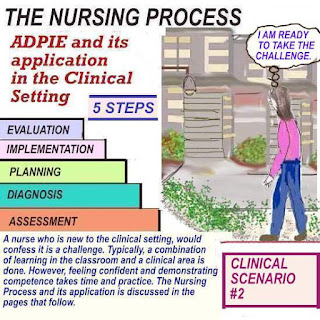A CARDIOPULMONARY ARREST - QUIZ QUESTIONS
A Code Blue in progress
The scenario above, shows several staff members around the bedside of
The scenario above, shows several staff members around the bedside of
a patient in cardiopulmonary arrest, in the ICU. However , this can occur
anywhere. Trained staff are usually assigned to follow ACLS guidelines
in such a situation. CPR is started by the staff.
Learn more by watching the video:
anywhere. Trained staff are usually assigned to follow ACLS guidelines
in such a situation. CPR is started by the staff.
Learn more by watching the video:
Cardiopulmonary arrest is called a Code Blue. This means the heart has
stopped beating and the body's cells are deprived of blood supply and oxygen.
Immediate action is taken by the staff , to call a Code Blue overhead. This
summons trained personnel to that patient's bedside.
Immediate action is taken by the staff , to call a Code Blue overhead. This
summons trained personnel to that patient's bedside.
Without a doubt, everything is chaotic. A crash cart which contains medications,
syringes, suctioning equipment, a defibrillator, IV solutions, IV tubings and much more,
is brought to the bedside. A doctor, with the help of nurses, a pharmacist etc, helps to run the code blue.
syringes, suctioning equipment, a defibrillator, IV solutions, IV tubings and much more,
is brought to the bedside. A doctor, with the help of nurses, a pharmacist etc, helps to run the code blue.
* It must be remembered, that every attempt to correctly record all medications, EKG
strips and interventions, should be taken. Special attention should be paid to correct
dosages as well as labeling. Lab values will also be ordered.
strips and interventions, should be taken. Special attention should be paid to correct
dosages as well as labeling. Lab values will also be ordered.
The outcome of a Code Blue is not always what one expects. Family issues will
also have to be addressed.
also have to be addressed.
QUIZ QUESTIONS
!) What is a cardiopulmonary arrest?
2) When a Code Blue is called, what course of action is taken?
3) What is the crash cart?
!) What is a cardiopulmonary arrest?
2) When a Code Blue is called, what course of action is taken?
3) What is the crash cart?
Dearnurses.org is no longer available.
The scenario above, shows a young man arriving in the ER. He is
in respiratory distress. An ABG ( arterial blood gas) is ordered by
the doctor. The results show hypoxemia ( low oxygen blood level).
The doctor orders mechanical ventilation to improve the work of breathing.
He will also be transferred to ICU.
in respiratory distress. An ABG ( arterial blood gas) is ordered by
the doctor. The results show hypoxemia ( low oxygen blood level).
The doctor orders mechanical ventilation to improve the work of breathing.
He will also be transferred to ICU.
2) What is hypoxemia?
Learn more by clicking on the link:





Comments
Post a Comment